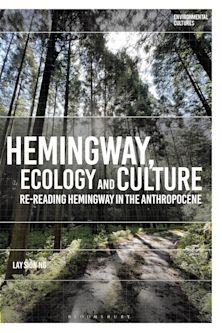The World's Scavengers
Salvaging for Sustainable Consumption and Production
- Textbook
The World's Scavengers
Salvaging for Sustainable Consumption and Production
- Textbook
This product is usually dispatched within 1 week
- Delivery and returns info
-
Free US delivery on orders $35 or over
Description
Medina tells us that up to 2% of the urban population in developing countries survives by salvaging materials from waste for recycling, which represents up to 64 million scavengers in the world today. Despite these numbers, we know little about the impact of scavenging on global capitalism development. The author examines its historical evolution and its linkages with formal and informal sector productive activities in capitalist and non-capitalist societies, in case studies from Mexico, Brazil, Colombia, Argentina, Egypt, the Philippines, and India. His new book radically alters popular perceptions on scavenging, demonstrating that many widely-held beliefs are wrong: scavenging is not primarily the activity of the poor nor is it a strictly marginal activity; the economic impact of scavenging is significant and can increase industrial competitiveness; and scavenging can be compatible with a sustainable waste management system. Scavenging represents an adaptive response to poverty, yet at the same time it can be a resource to cities, whose contributions should be recognized and understood.
Table of Contents
2 Scavenging in Historical Perspective
3 Globalization, Solid Waste Management and Scavenging in the Third World
4 Scavenging and Sustainable Consumption and Production
5 Methodological Issues: How to Study Scavenging
6 Mexico
7 Colombia
8 Argentina
9 The Phillippines
10 Egypt
11 Globalization and Scavenging
12 Conclusions
Product details
| Published | May 03 2007 |
|---|---|
| Format | Hardback |
| Edition | 1st |
| Extent | 318 |
| ISBN | 9780759109407 |
| Imprint | AltaMira Press |
| Dimensions | 9 x 6 inches |
| Series | Globalization and the Environment |
| Publisher | Bloomsbury Publishing |


































